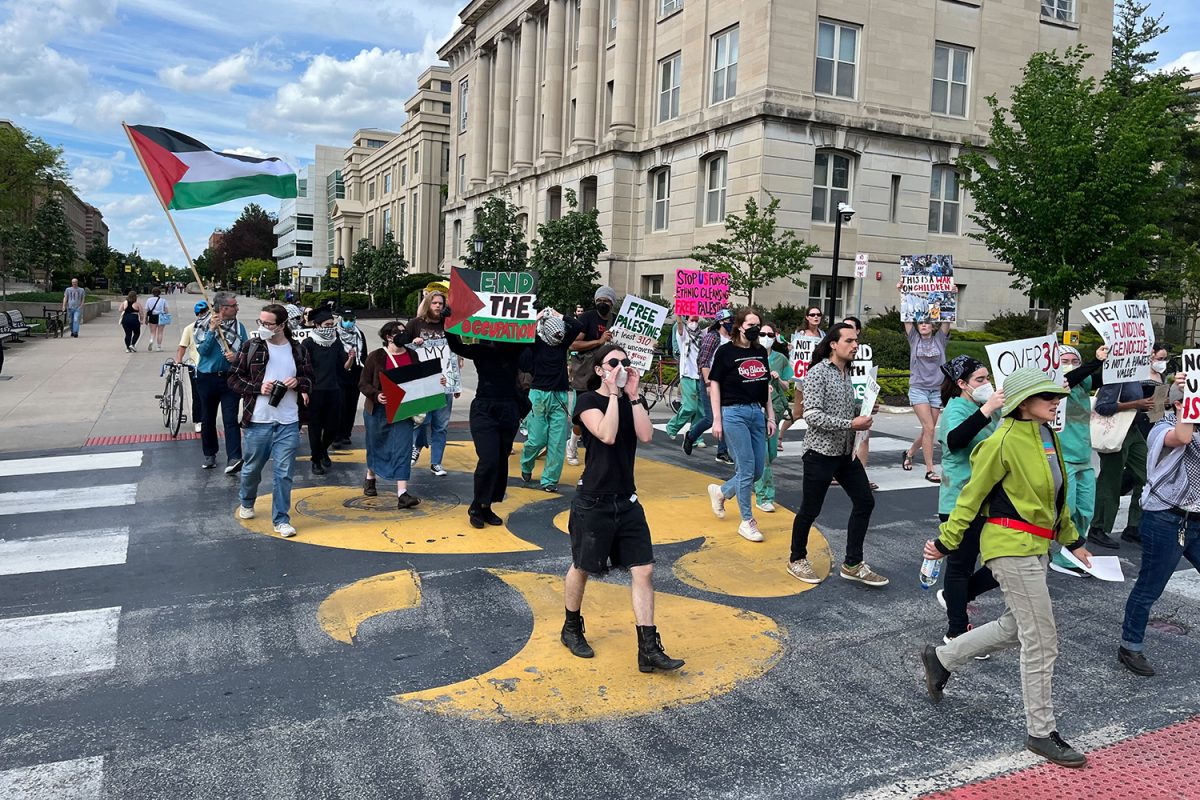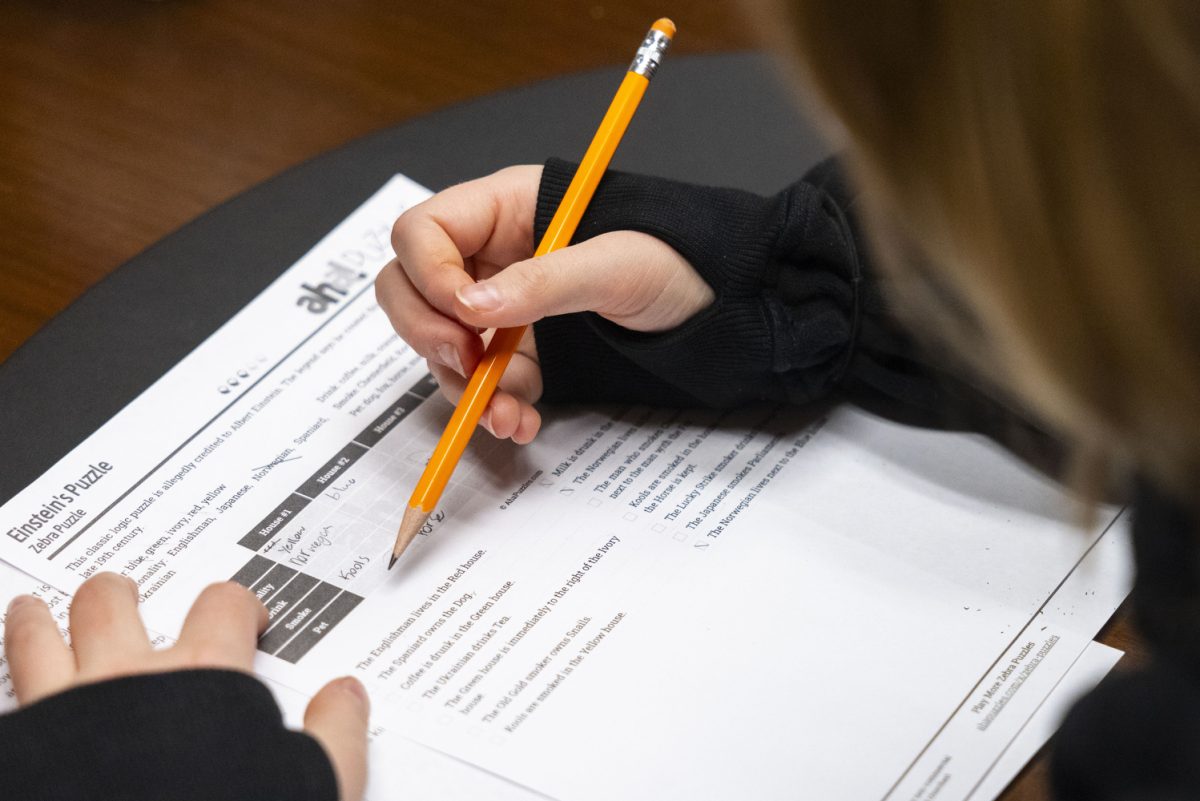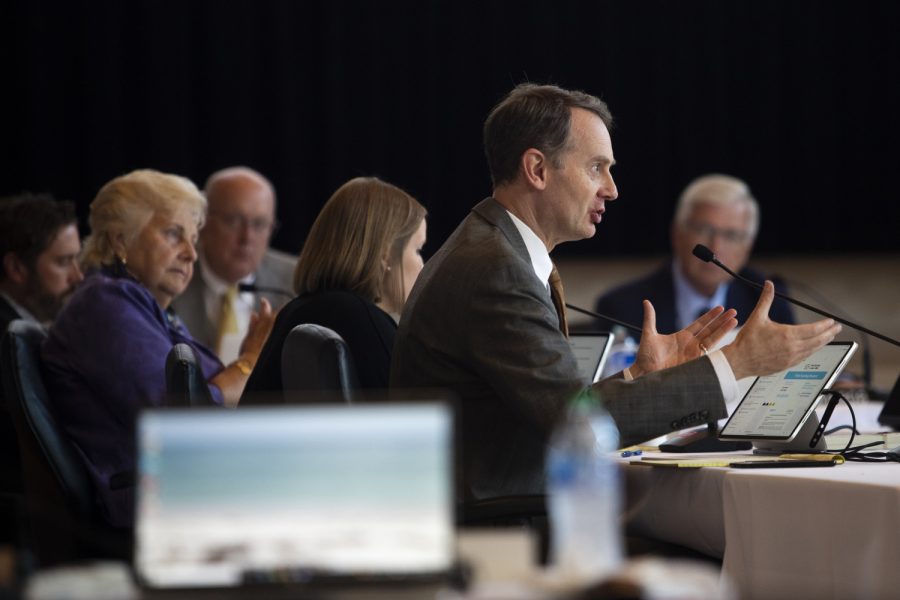By Vivian Le
Within the basement walls of the University of Iowa Biology Building East, Professor David Soll and his team are operating a major national cancer research resource. Combined with exclusive technology, Soll’s labs are making developments in the world of cancer research.
The Developmental Studies Hybridoma Bank was established by the National Institutes of Health as a national resource at the UI in 1986.
Today, it houses a collection of 4,400 monoclonal antibodies valued at $250 million. In the last year, the bank sent out 70,000 samples worldwide to various researchers studying cancer treatments as well as other diseases and disorders.
“Thirty-five monoclonal antibodies, so far, have been approved by the FDA as drugs against cancer,” Soll said, the director of the Developmental Studies Hybridoma Bank. “And probably at least 50 percent of all drugs now being tested in clinical trials — which costs hundreds of millions of dollars — by drug companies are monoclonal antibodies against cancer.”
According to MedicineNet.com, hybridomas are hybrid cells used as the basis for the production of antibodies in large amounts for diagnostic or therapeutic use.
The UI bank is the only one for hybridomas in the nation that isn’t commercial. Through specially developed methods, the bank has been able to produce antibodies cheaper than commercial companies while keeping its staff size quarter of a typical lab.
The bank also sells and distributes these important biological agents at one-eighth of commercial prices, which allows for large amounts of research to be stimulated worldwide.
However, the Hybridoma Bank doesn’t make any profit. A large amount of the money goes back to running the bank, funding five graduate fellowships in the Biology Department, and funding fellowships for professors in the College of Liberal Arts & Sciences.
Monoclonal antibodies are some of the most expensive drugs in the world. Four injection regimes can cost up to $100,050.
Soll takes the work he does at the bank personally after the death of his wife, Michele Morice. Morice died of brain cancer after a monoclonal treatment caused her to bleed in her brain. Soll said the drug was $26,000 for three shots and was eventually taken off the market.
“It was a junk drug anyway,” Soll said. “There aren’t a lot of good cancer drugs out there. Radiation therapy is good, but monoclonal antibodies are the future, but they really still don’t have good ones. So we decided we would make good ones. After my wife died, I decided that’s what I would do in my old age.”
Soll is also the director of the Keck Dynamic Image Analysis Facility in the Biology Department. At the analysis facility, experts have developed a program, the J3D-DIAS that allows them to reconstruct tumors in 3-D images. Using those models, scientists working at the facility can test antibodies from the bank to see which can stop tumorigenesis.
“What we do is at the live-cell level and similar to the human body,” said Daniel Lusche, aUI associate research scientist. “What most people in laboratories do is that they just look at these two levels, so they see all these extensions. You really have to look at different levels of the cells, and you see extensions and they all behave differently.”
The facility discovered that tumorigenesis can occur by coalescence of smaller cancer cells, a process they are working on inhibiting through the use of monoclonal antibodies from the bank.
“I believe we can say we have made some discoveries about how tumors grow that had not been previously documented because we have this technology available to us, and we can actually watch the tumor grow,” said Deborah Wessels, a UI associate research scientist.
The facility will soon move to set up observations in a mouse model.







